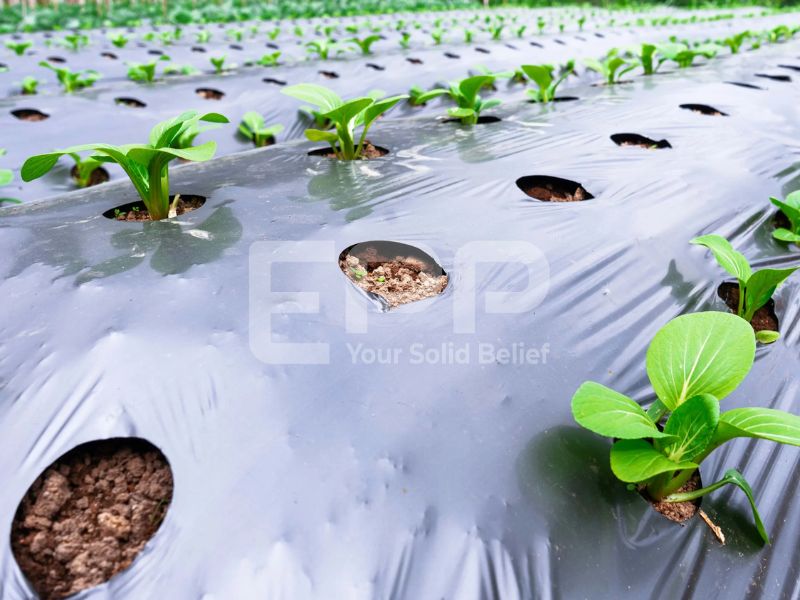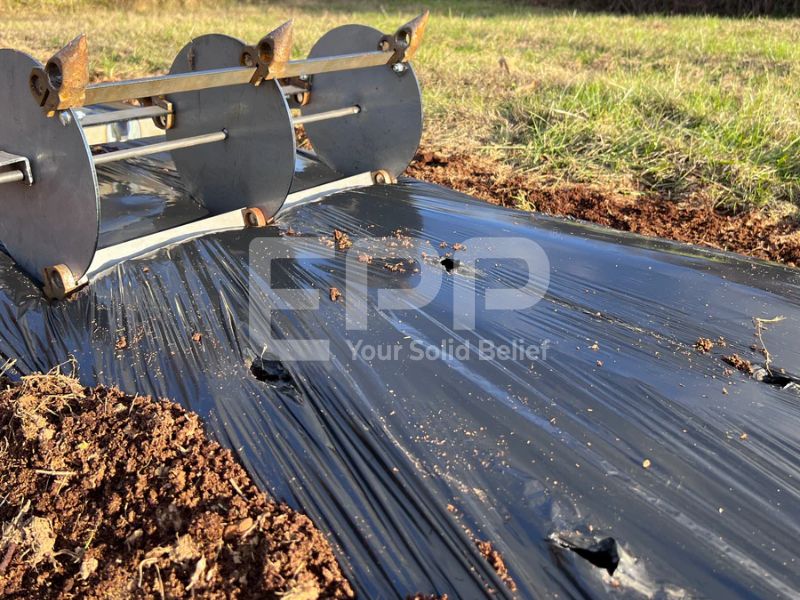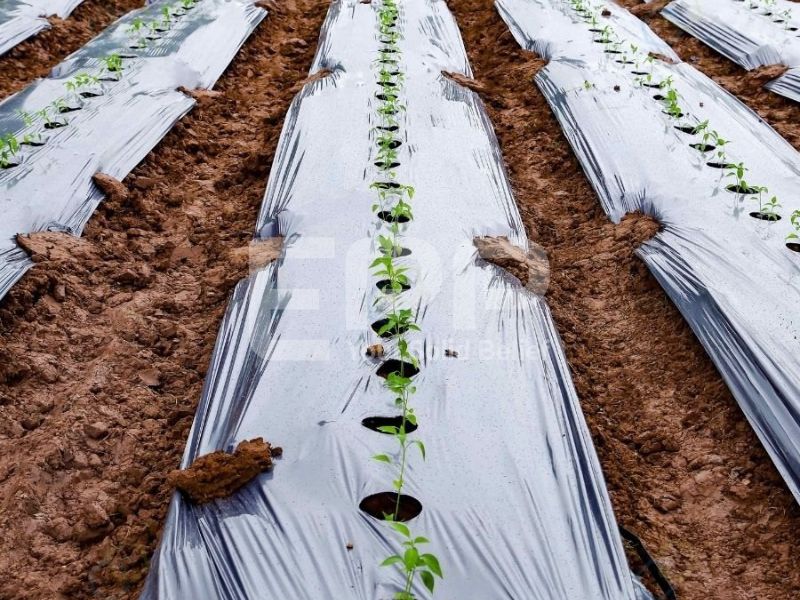Mulch films are essential tools in modern agriculture and gardening, providing numerous benefits for crop protection and soil health. These films serve as a barrier between the soil and the elements, helping to control weeds, retain moisture, and regulate soil temperature. Understanding what mulch films are made of and their various components can help growers make informed decisions about their use. This article will delve into the primary materials used in mulch films, additional additives, types of mulching films categorized by color and function, and environmental considerations.
What Are Mulch Films?

Mulch films are a type of plastic sheeting used in agriculture and horticulture to cover soil around plants. Their primary functions include suppressing weed growth, retaining soil moisture, improving temperature regulation, and enhancing crop yield. Unlike organic mulches like straw or wood chips, mulching films offer a more uniform and long-lasting solution.
These films are widely used in vegetable farming, fruit orchards, and even in greenhouse films applications. By creating a barrier between the soil and the environment, mulch films reduce evaporation, prevent erosion, and minimize the need for herbicides. They are also compatible with fabric weed barriers, which are often used in tandem for added durability and weed control.
Primary Materials Used in Mulch Films

The most commonly used materials in mulch films are:
Polyethylene: This is the most prevalent material used for mulching films due to its durability and versatility. Polyethylene mulch film is typically available in various thicknesses and colors, allowing for tailored solutions depending on the crop and growing conditions. These films can effectively block sunlight and are resistant to tearing and puncturing.
Biodegradable Plastics: With a growing emphasis on sustainability, biodegradable mulch film has gained popularity. These films are made from materials such as cornstarch, PLA (polylactic acid), or other organic materials that decompose over time. They provide the benefits of traditional plastic mulch without contributing to long-term plastic waste.
Polypropylene: Another type of plastic used in mulch films, polypropylene offers excellent resistance to UV light and is often used for longer-term applications. It is slightly more expensive than polyethylene but provides enhanced durability.
Other Additives in Mulch Films

In addition to the primary materials, various additives are used in mulch films to enhance their performance:
UV Stabilizers: These additives help protect the mulch film from degradation caused by ultraviolet (UV) rays from the sun. By incorporating UV stabilizers, manufacturers can extend the lifespan of the mulch film, ensuring it remains effective throughout the growing season.
Color Additives: Different color additives are used to modify the appearance of mulch films. For instance, black mulch films are popular for heat absorption, while white or reflective films help keep soil temperatures down. These colors can influence plant growth and weed suppression, allowing growers to choose films that best suit their needs.
Anti-Static Agents: Some mulch films include anti-static additives to prevent dust accumulation, which can affect light penetration and reduce the film’s effectiveness. This is particularly important in greenhouse applications where cleanliness is crucial.
Biocides: Certain mulching films may incorporate biocides to prevent the growth of fungi and bacteria. This can help protect crops from disease and improve overall plant health.
Types of Mulch Films by Color and Function
Mulch films come in various colors, each serving different purposes in agriculture and gardening:
- Black Mulch Film: These films are widely used for soil warming. They absorb heat from the sun, creating a warmer environment for plant roots, which can enhance growth and yield. Black mulch is particularly effective in suppressing weeds by blocking sunlight.
- White Mulch Film: White or reflective films are used to keep soil temperatures cooler. They are beneficial for crops that prefer cooler growing conditions, such as lettuce and other leafy greens. The reflective surface can also help deter certain pests.
- Red Mulch Film: Red mulch films are known to enhance the growth of certain crops, particularly tomatoes and peppers. The red color reflects specific wavelengths of light that can boost plant growth and yield.
- Clear Mulch Film: Clear films allow light to penetrate, promoting warmth and growth for soil-dwelling organisms. However, they can also encourage weed growth, making them less popular than other options.
Environmental Considerations

As concerns about plastic pollution continue to rise, the environmental impact of mulch film has become an increasingly important topic. Traditional plastic mulch films can contribute to long-lasting waste in landfills if not disposed of properly. However, biodegradable mulching films offer a viable alternative, decomposing naturally and reducing plastic waste.
To mitigate environmental impacts, growers are encouraged to adopt best practices, such as proper disposal of plastic mulch and selecting biodegradable options when possible. Additionally, recycling programs for agricultural films are emerging, providing avenues for responsible disposal and reuse.
Conclusion
Understanding what mulch films are made of is crucial for making informed decisions in agriculture and gardening. Agricultural films, greenhouse films, and fabric weed barriers each serve specific purposes, and the choice of material can significantly affect crop performance and environmental impact. With advancements in biodegradable options and an emphasis on sustainability, growers have more choices than ever to enhance their operations while minimizing environmental harm.
If you’re looking for high-quality mulch film to improve your agricultural practices, contact EPP Vietnam. Our range of mulch films is designed to meet the diverse needs of farmers and gardeners, ensuring durability and effectiveness in all conditions. Let EPP Vietnam help you achieve optimal results in your growing endeavors!

